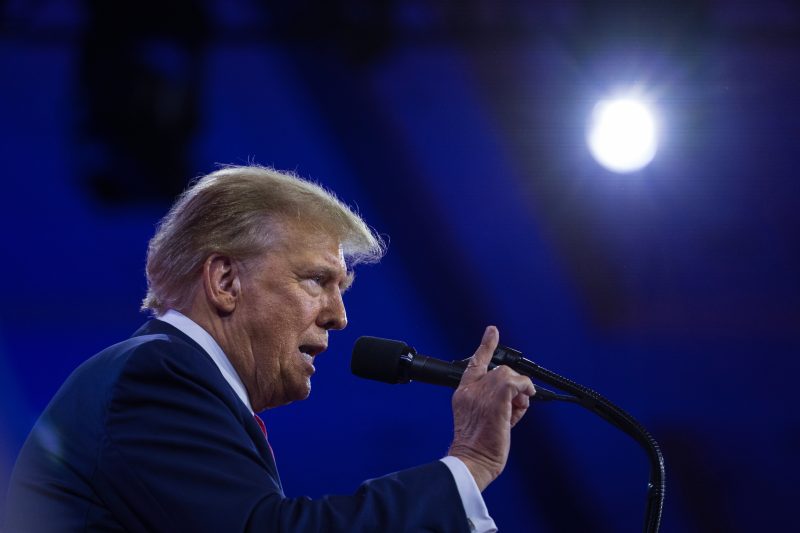In a recent public statement, former President Donald Trump sparked controversy by suggesting that Jewish Democrats in the United States harbor animosity towards their own religion. The remarks came during a speech at a conservative Jewish group fundraiser, where Trump attempted to appeal to Jewish voters, particularly those within the Democratic Party.
The notion that Jewish Democrats possess a disdain for their own faith is a sweeping generalization that raises eyebrows and invites scrutiny. While Trump did not elaborate on his claim, it is important to consider the complex factors at play when discussing the religious and political identities of individuals.
First and foremost, it is crucial to acknowledge that Jewish Americans, like all individuals, hold a diverse range of viewpoints and beliefs. The Jewish community in the United States is not a monolithic entity; it encompasses a spectrum of religious observance, cultural practices, and political affiliations. To suggest that Jewish Democrats uniformly reject or resent their faith overlooks the nuanced and multifaceted nature of identity within this community.
Furthermore, the relationship between religion and politics is a deeply personal and individualized matter. For many Jewish Americans, their political leanings are influenced by a variety of factors, including cultural heritage, social values, and personal experiences. While some individuals may prioritize certain political issues over others, it is a leap to conclude that such decisions are indicative of a wholesale rejection of one’s religious identity.
The intersection of faith and politics is complex, and it is not uncommon for individuals to navigate conflicting allegiances or priorities. Jewish Democrats, like members of any religious or political group, may grapple with tensions between their religious beliefs and their political values. To reduce this internal struggle to a simple dichotomy of love or hate for one’s religion oversimplifies the complex interplay of identity, ideology, and personal conviction.
It is also worth considering the broader context in which these remarks were made. Trump’s comments on Jewish Democrats must be understood within the framework of his political strategy and messaging. As a polarizing figure known for provocative rhetoric, Trump often seeks to appeal to his base and generate media attention through controversial statements. His comments on Jewish Democrats may be viewed as an attempt to galvanize support among certain segments of the Jewish community or to paint his political opponents in a negative light.
In conclusion, the suggestion that Jewish Democrats despise their own religion is a bold and speculative claim that warrants critical reflection. The complexities of identity, belief, and political affiliation defy easy categorization, and it is essential to approach such discussions with nuance and empathy. Rather than fueling division or perpetuating stereotypes, it is important to engage in thoughtful dialogue that respects the diversity of perspectives and experiences within the Jewish community and beyond.
